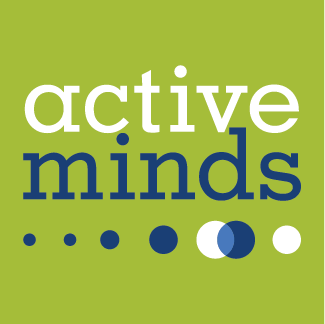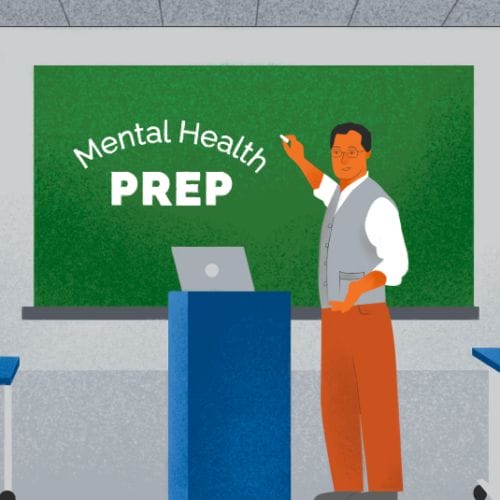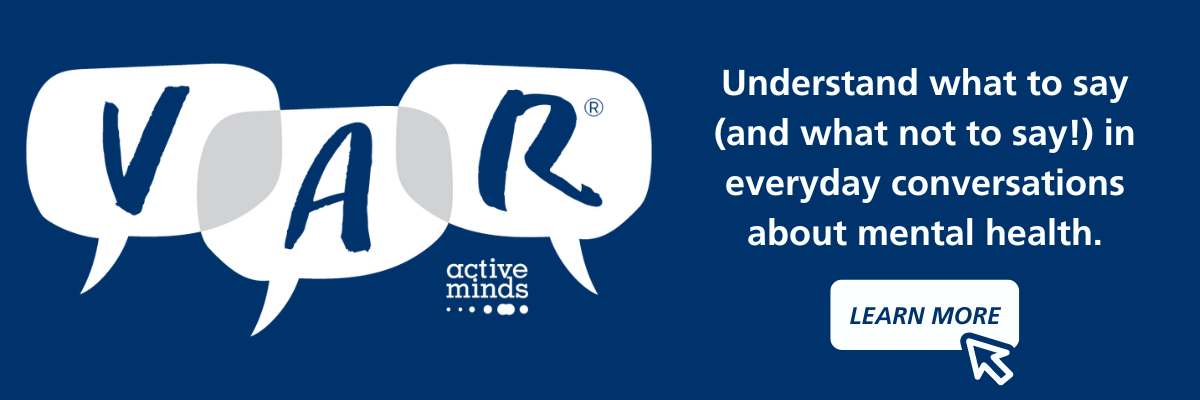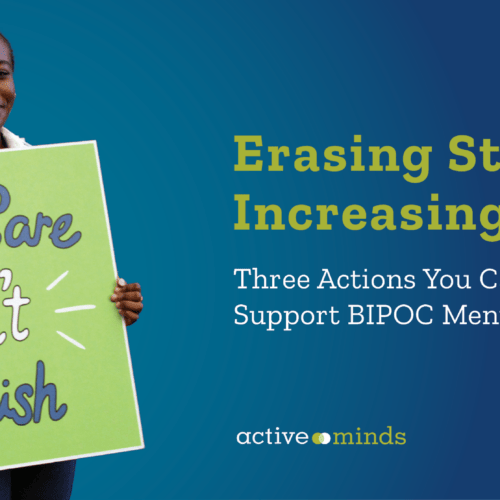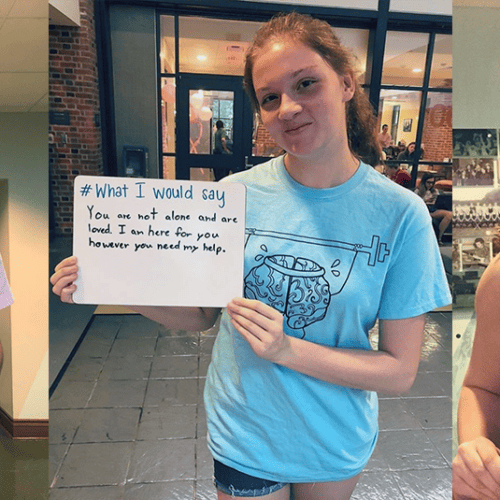Every year, I participate in summer orientation where we welcome students to campus. As a professor, this time is critical to meet the incoming class, hear from them about what they need during this transition, and uncover more about the best way we can lead in supporting student mental health. We take this responsibility seriously – our students’ well-being matters deeply to us, and we want to do all we can to support both new and returning students inside and outside the classroom.
However, this isn’t always easy, even for seasoned teaching veterans. As an Active Minds chapter advisor, what I often hear from my colleagues, both faculty and staff, is this:
“I’m worried about the mental health and well-being of my students, and feel ill-equipped and not confident enough to know how to be helpful.”
“I’m having to manage not only the mental health and well-being of my students and my colleagues but also my own. How do I manage it all?”
I want to share three tips I’ve found helpful in supporting student mental health while working and living in our current world:
Tip #1 – Normalize the Ups and Downs.
Where did the statement “these are the best years of your life” come from anyway? Although it is a common “pearl of wisdom” in reference to the college years, does anyone enjoy hearing it? Everyone has ups and downs, involved times and lonely times, and great successes and terrible mistakes. Though we know these fluctuations are part of the picture, the “the best years” phrase can make moments that are less-than-perfect seem like a miserable failure. You can normalize the ups and downs for your students as being the roller coaster that life is, and challenge the “best years” norm. Do this by sharing with your students when things are not or did not go well for you in your work. Normalizing life’s ups and downs better encourages your students to stay connected to the work they do with you. You can also remind them that simply doing their best is enough, as you sometimes remind yourself, so they can worry less about disappointing themselves and you when things don’t go as planned.
Tip #2 – Check Your Expectations, Before You Wreck Your Expectations.
Navigating life these days is harder than it has been in my recent memory. In light of this, students tell us over and over that some faculty and staff have done a good job making small expectation adjustments to accommodate the larger contextual challenges, and this flexibility and understanding has made all the difference in their mental health and academic performance. Norms work best when they can flex to fit changing contexts. For example, I teach a class that had a presentation, a test, and a paper. In 2020, I deleted the paper from the class expectation while also appropriately adjusting expectations for the presentation and test. Students are appreciative of the adjustments when possible. The class is not overall less work, but removing one element from long-standing class norms allows other class expectations to feel more manageable, without compromising overall class expectations. Look at your own normative expectations to see where you can adjust, so your norms fit the current context. Still have expectations of your students, just check that these expectations are reasonable of what’s happening outside the classroom. They will thank you – and you will thank yourself!
Tip #3 – Resources, Resources, Resources!
A common mistake is not reaching out for the help that exists. Student services are some of the most active, involved, and comprehensive support networks at any university. When in doubt, remind your students to make contact with support services and remind yourself to do the same when you need support and consultation, too! Some examples include campus counseling centers, an Active Minds chapter if your school has one (and if not, consider starting one!), and hotlines that are available nationwide. By familiarizing yourself with the tools available, you will be better equipped to refer students when they approach you seeking professional help and community support. It’s also important to familiarize yourself with resources around self-care – you can’t pour from an empty cup, and it’s important to make sure your mental health is supported as you continue to support others.
The return to campus continues to be challenging. However, being equipped with ideas of how to manage the challenge, not only in supporting student mental health but also for yourself, can turn this year into a wonderful time to continue to grow as individuals and in relationships with each other.
Best wishes with the new academic year!


